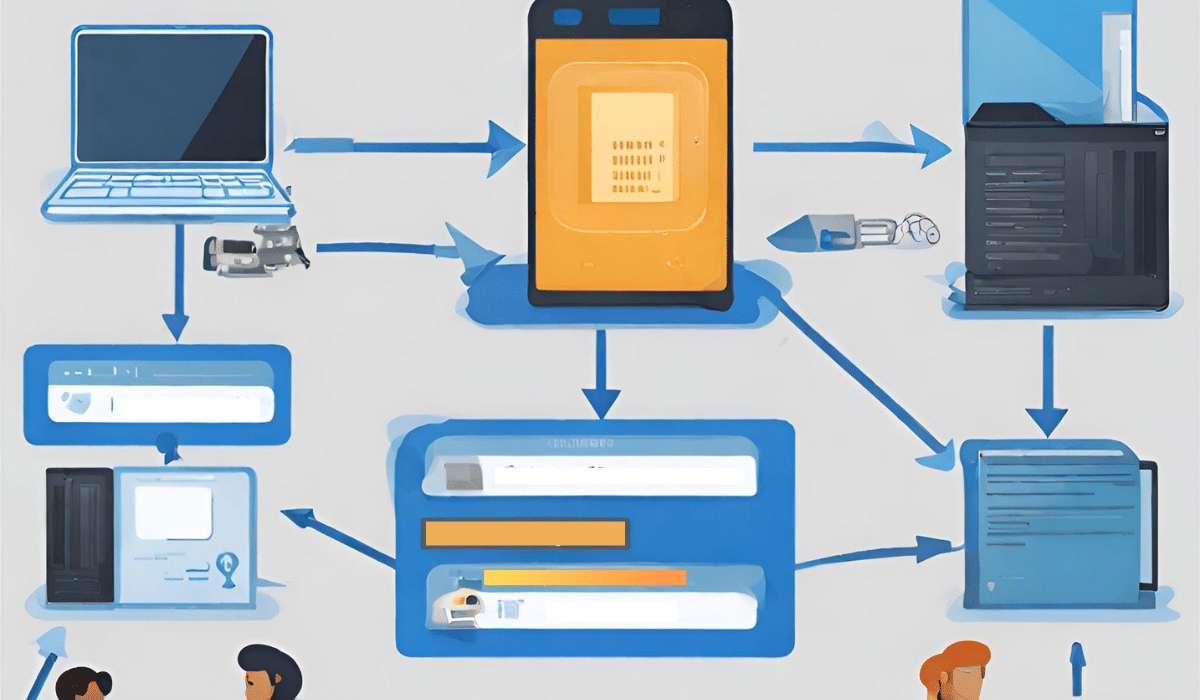Overview of Data Encryption And Its Importance
Data encryption is the process of converting plain text into a coded language to protect it from unauthorized access. It is an essential tool for securing sensitive information, such as financial data, personal information, and confidential business documents. Encryption works by using a complex algorithm to scramble the data, making it unreadable without the corresponding decryption key. This key is only given to authorized users, ensuring that only those with the proper credentials can access the information.
Understanding Encrypted Hard Drives

Encryption is a crucial technique for safeguarding sensitive data, such as financial records, personal information, and confidential business documents. Encrypted hard drives are an effective way to secure this data by encoding it into a complex algorithm. This algorithm scrambles the data, rendering it unreadable without the corresponding decryption key. Only authorized users with the proper credentials can access the information by using this key. Encrypted hard drives are an essential tool for protecting sensitive information from unauthorized access.
Types of Encryption Used on Hard Drives

There are two main types of encryption used on hard drives: software-based encryption and hardware-based encryption. Software-based encryption is achieved through the use of encryption software installed on the computer. This software encrypts the data as it is written to the hard drive and decrypts it when it is accessed. This type of encryption is flexible and can be used on any computer, but it can slow down the computer’s performance.
Benefits of Encrypting Hard Drives
Encrypting hard drives provides several benefits, including:
1. Protection of sensitive data: Encryption ensures that if a hard drive is lost or stolen, the data on it cannot be accessed without the encryption key, protecting sensitive information.
2. Compliance with regulations: Many industries, such as healthcare and finance, are required by law to encrypt certain types of data to comply with regulations.
3. Peace of mind: Knowing that your data is encrypted can give you peace of mind.
Reasons for Data Loss from Encrypted Hard Drives
While encryption can provide many benefits, there are also some reasons for data loss from encrypted hard drives. These include:
1. Forgetting or losing the encryption key: If you forget or lose the encryption key, you will not be able to access the data on the hard drive.
2. Malware or virus attacks: Malware or virus attacks can corrupt the encryption key or the encrypted data, making it impossible to access.
3. Physical damage to the hard drive.
Steps to Recover Data from Encrypted Hard Drives
- Evaluating the situation
- Identifying the type of encryption used
- Checking for hardware problems
Software Tools for Recovering Data from Encrypted Hard Drives

Here are some software tools that can be used to recover data from encrypted hard drives:
1. EaseUS Data Recovery Wizard: This software can recover data from encrypted hard drives that have been lost due to accidental deletion, formatting, virus attacks, or system crashes.
2. Disk Drill: This software can recover data from encrypted hard drives that have been lost due to file system errors, accidental deletion, or virus attacks. It also has a feature that can help recover lost partitions.
Professional Data Recovery Services
In addition to software solutions, professional data recovery services can also be used to recover data from encrypted hard drives. These services employ specialized techniques and equipment to retrieve data from damaged or inaccessible hard drives. Some reputable data recovery services include Kroll Ontrack, DriveSavers, and Secure Data Recovery. It’s important to note that professional data recovery services can be quite expensive and may not be necessary for all situations. It’s always a good idea to try software solutions first before considering professional services.
DIY Methods to Recover Data from Encrypted Hard Drives
When it comes to recovering data from encrypted hard drives, there are a few DIY methods you can try before resorting to professional services. Here are some options:
1. Use data recovery software: There are many data recovery software options available online that can help you recover data from encrypted hard drives. Some examples include EaseUS Data Recovery, Recuva, and Disk Drill.
2. Check your backups: If you have backups of your encrypted hard drive, you may be able to recover your data from there. Check your cloud backups, external hard drive backups, or any other backup options you may have used.
3. Try a decryption tool: If you have the encryption key or password, you may be able to use a decryption tool to access your encrypted hard drive and recover your data. Some popular decryption tools include VeraCrypt, BitLocker, and FileVault.
It’s important to note that these DIY methods may not always work and could potentially cause further damage to your encrypted hard drive. If you’re unsure about how to proceed or if your data is particularly valuable, it’s best to consult with a professional data recovery service.
Best Practices for Preventing Data Loss from Encrypted Hard Drives
Here are some best practices to prevent data loss from encrypted hard drives:
1. Regularly back up your data: This is the most important step to prevent data loss. Make sure you back up your data regularly to an external hard drive, cloud storage, or any other secure location.
2. Use strong passwords: Use strong passwords that are difficult to guess or crack. Avoid using common words, phrases, or personal information as your password.
3. Keep your encryption software up-to-date.
Understanding Legal Implications of Data Recovery
Data recovery can have legal implications, especially when it involves accessing someone else’s data. Here are some things to keep in mind:
1. Respect privacy laws: Depending on where you are located, there may be privacy laws that govern how you can access and use someone else’s data. Make sure you are aware of these laws and comply with them.
2. Get permission: If you are trying to recover data from someone else’s device, make sure you have their permission.
Ethical Considerations for data recovery
In addition to legal implications, there are also ethical considerations to keep in mind when it comes to data recovery. Here are some things to consider:
1. Respect confidentiality: If you are recovering data for someone else, make sure you respect their confidentiality. Do not share their data with anyone else without their permission.
2. Be transparent: Be upfront about what data you are recovering and why. Make sure the person whose data you are recovering understands what you are doing and why.
Conclusion
In conclusion, it is important to always keep in mind the legal and ethical considerations when it comes to data recovery. Respecting confidentiality and being transparent with the person whose data is being recovered is crucial to maintaining trust and professionalism. By delivering results while upholding these principles, you can ensure that your services are both effective and ethical.
FAQs
What is an encrypted hard drive?
An encrypted hard drive is a storage device that has been encoded with a specific algorithm to protect the data stored on it. This encryption makes it more difficult for unauthorized individuals to access the information on the hard drive.
Can all types of data be recovered from encrypted hard drives?
No, not all types of data can be recovered from encrypted hard drives. The purpose of encryption is to make it difficult for unauthorized individuals to access the data, so if the encryption is strong enough, it may be impossible to recover the data without the proper decryption key. However, there are some techniques and tools that can be used to attempt to recover data from encrypted hard drives, but these methods are often complex and may not always be successful.
How much do professional data recovery services cost?
The cost of professional data recovery services can vary depending on several factors, such as the type of device, the severity of the damage, and the amount of data that needs to be recovered. On average, the cost can range from a few hundred dollars to several thousand dollars. It’s important to note that not all data may be recoverable, and there is no guarantee that the data recovery process will be successful.
Is it safe to use DIY data recovery methods?
Using DIY data recovery methods can be risky and may cause further damage to your device or data. It’s always recommended to seek professional help from a reputable data recovery service provider. DIY methods may also void any warranty or insurance that you have on your device. Additionally, if the data is sensitive or confidential, it’s best to leave it in the hands of professionals who can ensure its security and privacy.
What are the best practices for preventing data loss from encrypted hard drives?
There are several best practices that you can follow to prevent data loss from encrypted hard drives:
1. Regularly back up your data: It’s important to create regular backups of your encrypted data to ensure that you can recover it in case of any data loss or corruption.
2. Use strong passwords: Always use strong, unique passwords for your encrypted hard drives. Avoid using common passwords or easily guessable passwords.
3. Keep your encryption software up to date.
